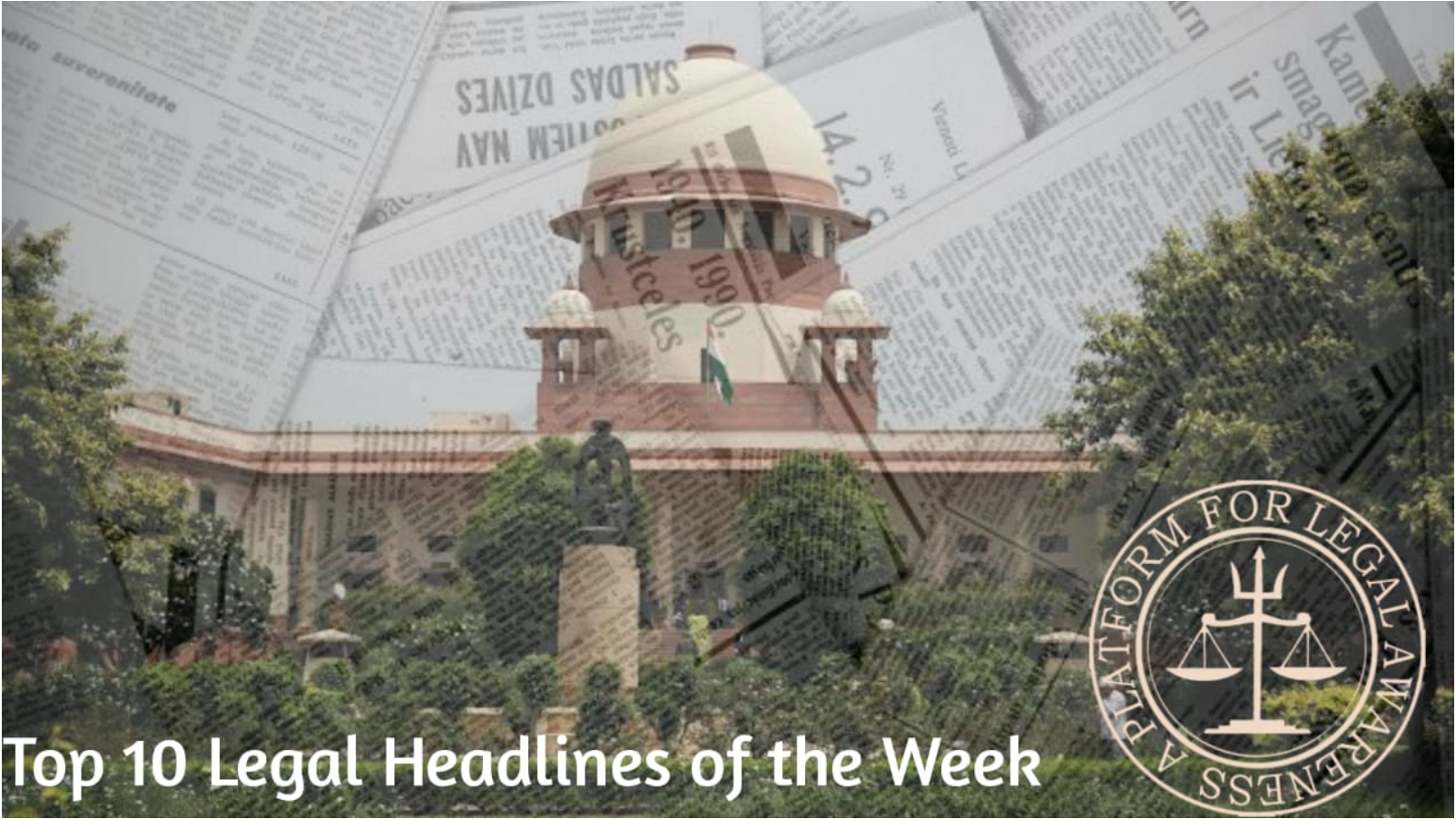1. Supreme Court: Stay in Azure–PPL Copyright Case Limited to Parties Involved
The Supreme Court clarified that the stay it granted in April 2025 in the copyright dispute between Azure Hospitality and Phonographic Performance Limited applies only to the suit pending before the Delhi High Court. The bench made it clear that the stay does not extend to or affect third parties in any manner. PPL had accused Azure of playing its copyrighted music without a license in 86 restaurants, including Mamagoto and Sly Granny. The Court's clarification ensures the stay cannot be misused beyond the ongoing litigation.
2. Supreme Court Orders Army Commando to Surrender in Dowry Death Case
The Supreme Court has directed an army commando convicted under Section 304 B of the Indian Penal Code, related to dowry death, to surrender before the authorities within two weeks. Despite the petitioner’s elite military background and his participation in Operation Sindoor, the Court held that such service does not excuse the crime. In fact, it reinforced his capability to strangle the victim. The Court refused to grant any relief, reiterating that serious crimes like dowry deaths must be dealt with strictly, irrespective of a person's profession.
3. Supreme Court to Hear Plea on OBC Certificates for Children of Single Mothers
The Supreme Court has agreed to examine a petition highlighting the difficulties faced by single mothers in securing OBC certificates for their children. The current rules mandate that caste must be established through the paternal line, making it nearly impossible for children raised solely by their mothers to claim rightful benefits. Observing the “serious hardship” that such families endure, the Court has decided to hear the challenge to these restrictive guidelines, potentially paving the way for more inclusive policies regarding caste determination.
4. Supreme Court Stays Cheating Case Against Shaadi.com Founder Anupam Mittal
The Supreme Court has stayed criminal proceedings against Shaadi.com founder Anupam Mittal in a cheating case. The complaint arose after a woman alleged that she was defrauded by a man she met on the platform, blaming the company for not verifying user details. The Court intervened to halt the case, noting the broader issue of liability of digital platforms for user-generated content. This decision provides temporary relief to Mittal while raising important questions about due diligence on matchmaking websites.
5. Supreme Court Orders Inquiry Into Jail's Refusal to Release Bail-Granted Accused
The Supreme Court has ordered a judicial probe into the Ghaziabad District Jail's refusal to release an accused granted bail in a case involving alleged forced religious conversion. Despite securing bail in April, the man remained in custody, prompting the Court to intervene. Criticising the jail authorities for violating judicial orders, the Court also directed the State to compensate the accused with ?5 lakh and report compliance. This move underscores the Court’s intolerance for administrative defiance of legal mandates and unlawful detention.
6. Supreme Court Takes Suo Motu Cognisance of Lawyers Being Summoned by Agencies
The Supreme Court has initiated a suo motu case addressing concerns over investigating agencies summoning lawyers in matters concerning their clients. The Court emphasised that such actions pose a serious threat to the administration of justice and legal independence. This move follows the Enforcement Directorate’s recent summons to Senior Advocates Arvind Datar and Pratap Venugopal, triggering widespread concern in the legal community. The Court made it clear that the professional role of lawyers must be protected from unwarranted scrutiny by enforcement agencies.
7. Supreme Court Stays Police Summons to Lawyer, Flags Larger Issue of Lawyer Summons
The Supreme Court stayed a Gujarat High Court order that had declined to intervene in police summons issued to a lawyer by the State authorities. Noting the implications of such actions, the Court also took suo motu cognisance of the broader issue concerning the power of investigating agencies to summon advocates in matters involving their clients. The bench emphasised that such practices could erode the independence of the legal profession and compromise the right to fair legal representation.
8. Right to Close Down Business is a Fundamental Right, Says Supreme Court
The Supreme Court has affirmed that the right to close down a business is part of the fundamental right to carry on a trade or occupation under Article 19(1)(g) of the Constitution. However, this right is subject to reasonable restrictions and compliance with applicable labour laws. The Court clarified that if the State fails to respond to a business's closure application within the statutory timeframe, the closure will be deemed effective. The ruling strikes a balance between individual economic freedom and regulatory oversight.
9. Supreme Court Refuses Relief to Former Nagaland Judge in Disciplinary Case
The Supreme Court declined to entertain a petition filed by Inalo Zhimomi, former Principal District and Sessions Judge of Dimapur, Nagaland, against departmental proceedings initiated over alleged misappropriation of ?14 lakh in surety deposits. Despite having secured anticipatory bail in a related criminal case, Zhimomi sought to halt the disciplinary inquiry. The Court, however, refused intervention, allowing the High Court’s disciplinary action to proceed. This reinforces the principle that judicial officers are accountable for financial misconduct even after securing bail in criminal proceedings.
10. Supreme Court Halts Demolition of Homes in Raigad, Maharashtra
The Supreme Court stayed the eviction and demolition of homes belonging to over 55 families in Raigad, Maharashtra. The families were reportedly given just two days’ notice, with demolition machinery already at the site when the order was stayed. The Court intervened against a Bombay High Court directive permitting demolition of alleged unauthorised constructions. This stay provides temporary relief to the affected families and highlights the importance of due process and humane notice periods in eviction matters.

